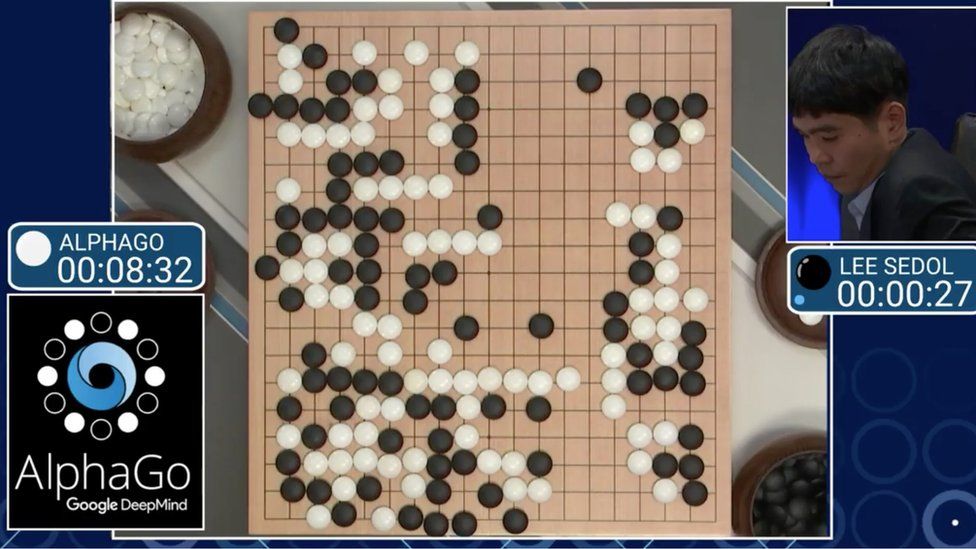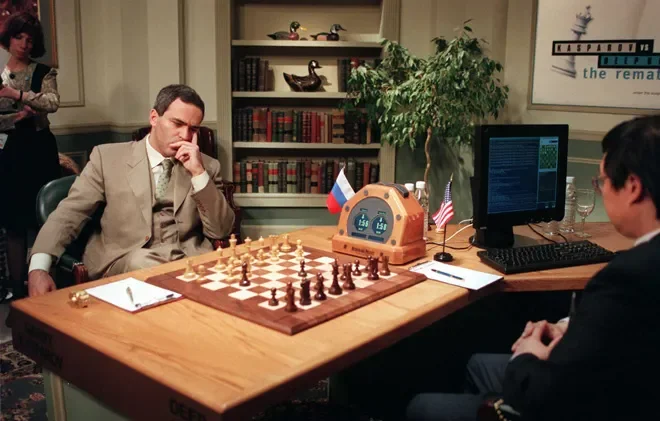Chess, Poker Go and the development of Artificial Intelligence
The future of Artificial Intelligence (AI) is widely considered the most important technological trend that will impact humanity over the coming decades. This blog will discuss the role of games in benchmarking trends in the development of AI. Over the late 20th century and start of the current century, the intellectual challenges of Chess, Go and Poker have served as perfect tests of technological capability.
Disclaimer - I myself am an avid chess player – and have even competed in the niche and noble sport of chess boxing: Chessboxing | The Minotaur vs Demontime | Chessboxing Mayhem 2023 Bout 2 | Chess Boxing - YouTube. When not advising on Futures Policy by day, I am very much a chess nerd by night.Chess has long been considered the ultimate test of human intellectual prowess, and therefore a perfect testbed for the efficacy of AI. As early as 1948, pioneers of AI and machine learning such as Alan Turing conceived of ‘Turochamp’– a chess engine that was capable of playing at a low level against human players. Turochamp could unfortunately never run due to the limitations of computers at the time, but certainly started a trend of relating technology to chess.
The turning point for chess in AI came in 1997 when IBM's Deep Blue defeated the reigning World Chess Champion, Garry Kasparov, arguably the greatest player of all time, 3.5 vs 2.5. This match had huge symbolic importance as in the popular consciousness it was seen as AI catching up with human intelligence for the first time.
So great was the symbolic victory that on the day after the event the IMB stock price rose to a ten year high. Kasparov however was less convinced that this moment marked the creation of genuine AI glibly joking “Deep Blue was intelligent the way your programmable alarm clock is intelligent. Not that losing to a $10 million alarm clock made me feel any better.”
In more recent times, the exploits of Google’s Deep Mind have been an incredible example of using both chess and Go to demonstrate advances in AI. In late 2017, Deep Mind introduced Alpha Zero which took a new technological approach of using deep neutral networks. The developers at Deep Mind only taught Alpha Zero the rules of the game and then programmed it to play millions of games against itself via a process of trial and error called reinforcement learning. This differed from traditional engines that relied on heuristics (such as the quantitative value of different pieces 1 point for a pawn, 3 for a knight and bishop, 5 for a rook 9 for a queen etc) and instead devised all its own assumptions and intuitive strategies about the game. Alpha Zero developed a dynamic, novel and most interestingly human-like style that allowed it to beat the strongest traditional chess engine Stockfish.
Renowned Grandmaster and computer scientist Matthew Sadler commented that Alpha Zero played with “a very human sense of consistent purpose”. Kasparov also commented on the potential for these learnings to go well beyond chess and benefit humanity more generally stating “The implications go far beyond my beloved chessboard... Not only do these self-taught expert machines perform incredibly well, but we can actually learn from the new knowledge they produce.”
Deep Mind has also developed AlphaGo, the subject of a popular Netflix documentary, that was able to conquer Go in March 2016 by defeating the then world champion Lee Sedol. It is testament to the vast complexity of Go that this was 19 years after Deep Blue defeated Kasparov. In fact the more strategic and aesthetic nature of Go makes it harder for a brute force engine to reign victorious and therefore particularly lends itself to reinforcement learning via neutral networks. In China, AlphaGo has been seen as a "Sputnik moment" which helped convince the Chinese government to dramatically increase funding for AI. Stephen Hawking even expressed concern that programs such as AlphaGo could eventually develop ‘general intelligence’ leading to AI takeover of human society.

The most recent game where human players were conquered is poker, whereby the program ‘DeepStack’ defeated 11 of the best human players in the world in December 2016. Poker is a different challenge to chess and Go as it is a game of imperfect information meaning the other players cards are invisible to the computer. A degree of randomization of play is required as if the program where to play in a consistent fashion human players would gradually understand the pattern which would make the computer exploitable.
Other than being a shameless indulgence into my passions for chess and technology this article demonstrates how using games with a defined set of rules and regulations and easily quantifiable measures of strength has been an invaluable benchmark when developing AI technology. Of course Governments and major companies alike have much grander aspirations for AI and aim to massively benefit humanity across: healthcare, autonomous vehicles, supply chain optimization and large language models as seen recently with the boom of ChatGPT.
Who knows if the technological boom of these technologies would have been as rapid without the use of these hugely popular intellectual games as testbeds?
Whilst humans have long been surpassed in chess by their robot counterparts, chess remains a brilliant game for human competition. PM Rishi Sunak has recently £500,000 Government funding for chess, a much needed investment into a game which has demonstrable cognitive benefits for children and adults alike and is a massively successful example of grassroots investment which can make a tangible difference.


